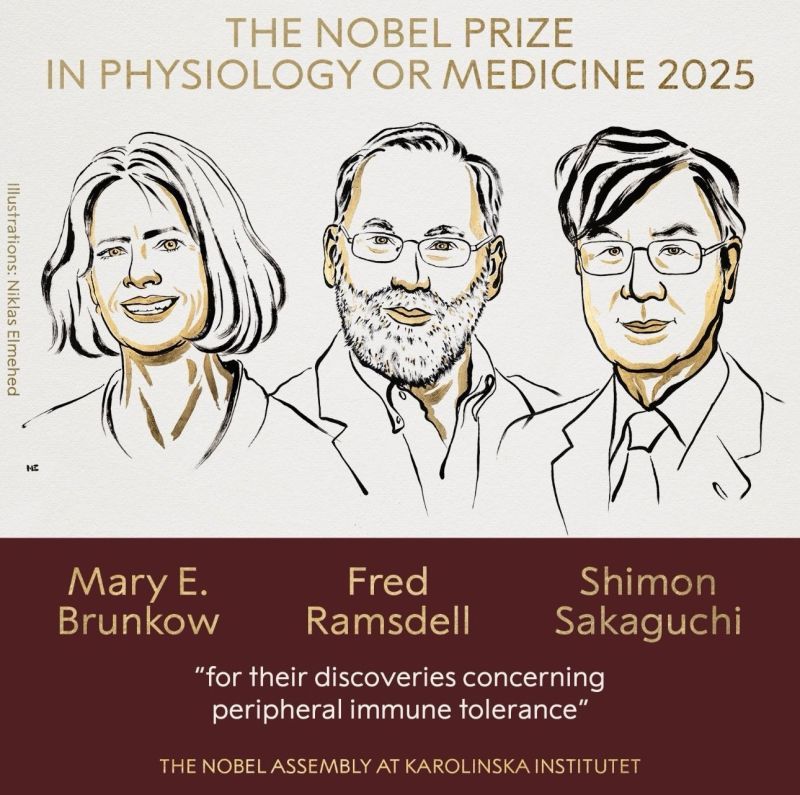Sendurai Mani, Professor of Medicine at Brown University, shared a post on LinkedIn:
“2025 Nobel Prize in Medicine: How Our Immune System Learns Not to Attack Us
This year’s Nobel Prize in Medicine was awarded to Mary E. Brunkow, Frederick J. Ramsdell, and Shimon Sakaguchi. They discovered how the immune system recognizes when not to attack our own bodies. This concept is called peripheral immune tolerance.
What the found
- They identified special immune cells called regulatory T cells (T-regs) that act as the brakes on the immune system, ensuring it functions properly without attacking the body.
- They also discovered a master control gene called FOXP3 that activates these T-regs and helps maintain balance within the immune system.
Why it matters
- Prevents autoimmune disease by stopping the immune system from attacking healthy tissues.
- By understanding how FOXP3 and T-regs regulate the immune system, we can develop medicines that suppress autoimmune diseases or enhance the immune response to fight cancer more effectively.
- These insights help improve many current tests and treatments being developed for autoimmune diseases, organ transplants, and cancer.
Learn more on the Nobel Prize website.”

More posts featuring Sendurai Mani on OncoDaily.


